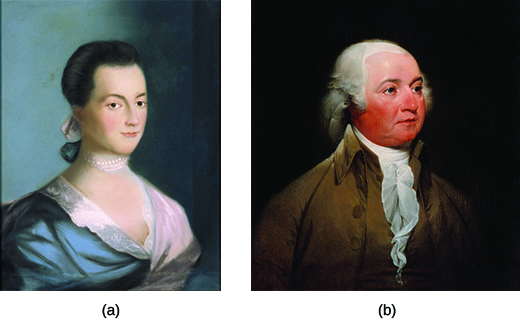| << Chapter < Page | Chapter >> Page > |
Elite republican revolutionaries did not envision a completely new society; traditional ideas and categories of race and gender, order and decorum remained firmly entrenched among members of their privileged class. Many Americans rejected the elitist and aristocratic republican order, however, and advocated radical changes. Their efforts represented a groundswell of sentiment for greater equality, a part of the democratic impulse unleashed by the Revolution.
In eighteenth-century America, as in Great Britain, the legal status of married women was defined as coverture , meaning a married woman (or feme covert ) had no legal or economic status independent of her husband. She could not conduct business or buy and sell property. Her husband controlled any property she brought to the marriage, although he could not sell it without her agreement. Married women’s status as femes covert did not change as a result of the Revolution, and wives remained economically dependent on their husbands. The women of the newly independent nation did not call for the right to vote, but some, especially the wives of elite republican statesmen, began to agitate for equality under the law between husbands and wives, and for the same educational opportunities as men.
Some women hoped to overturn coverture. From her home in Braintree, Massachusetts, Abigail Adams ( [link] ) wrote to her husband, Whig leader John Adams, in 1776, “In the new code of laws which I suppose it will be necessary for you to make, I desire you would remember the ladies and be more generous and favorable to them than your ancestor. Do not put such unlimited power in the husbands. Remember, all men would be tyrants if they could.” Abigail Adams ran the family homestead during the Revolution, but she did not have the ability to conduct business without her husband’s consent. Elsewhere in the famous 1776 letter quoted above, she speaks of the difficulties of running the homestead when her husband is away. Her frustration grew when her husband responded in an April 1776 letter: “As to your extraordinary Code of Laws, I cannot but laugh. We have been told that our Struggle has loosened the bands of Government every where. That Children and Apprentices were disobedient—that schools and Colledges were grown turbulent—that Indians slighted their Guardians and Negroes grew insolent to their Masters. But your Letter was the first Intimation that another Tribe more numerous and powerfull than all the rest were grown discontented. . . . Depend on it, We know better than to repeal our Masculine systems.”

Another privileged member of the revolutionary generation, Mercy Otis Warren, also challenged gender assumptions and traditions during the revolutionary era ( [link] ). Born in Massachusetts, Warren actively opposed British reform measures before the outbreak of fighting in 1775 by publishing anti-British works. In 1812, she published a three-volume history of the Revolution, a project she had started in the late 1770s. By publishing her work, Warren stepped out of the female sphere and into the otherwise male-dominated sphere of public life.

Notification Switch
Would you like to follow the 'U.s. history' conversation and receive update notifications?